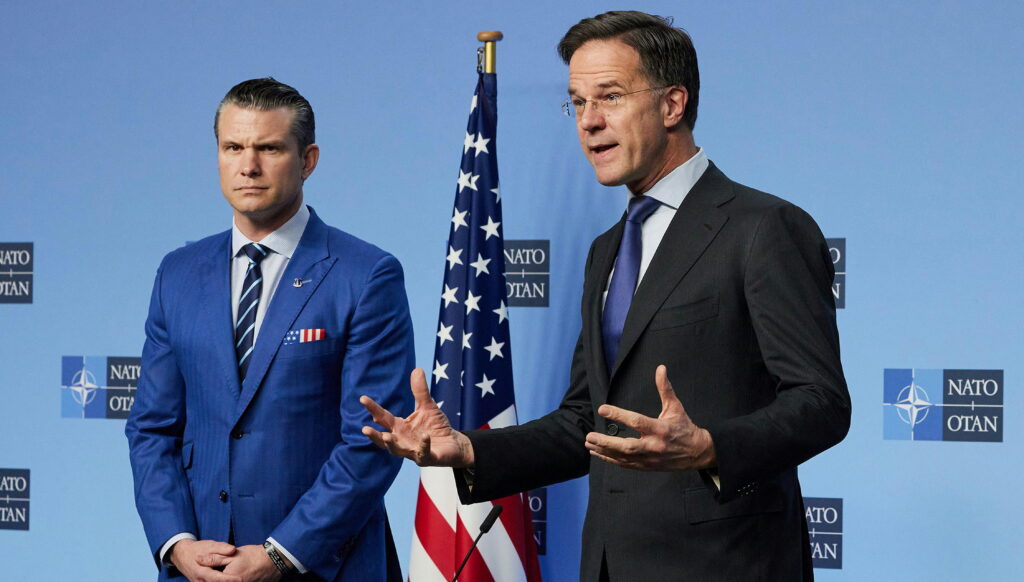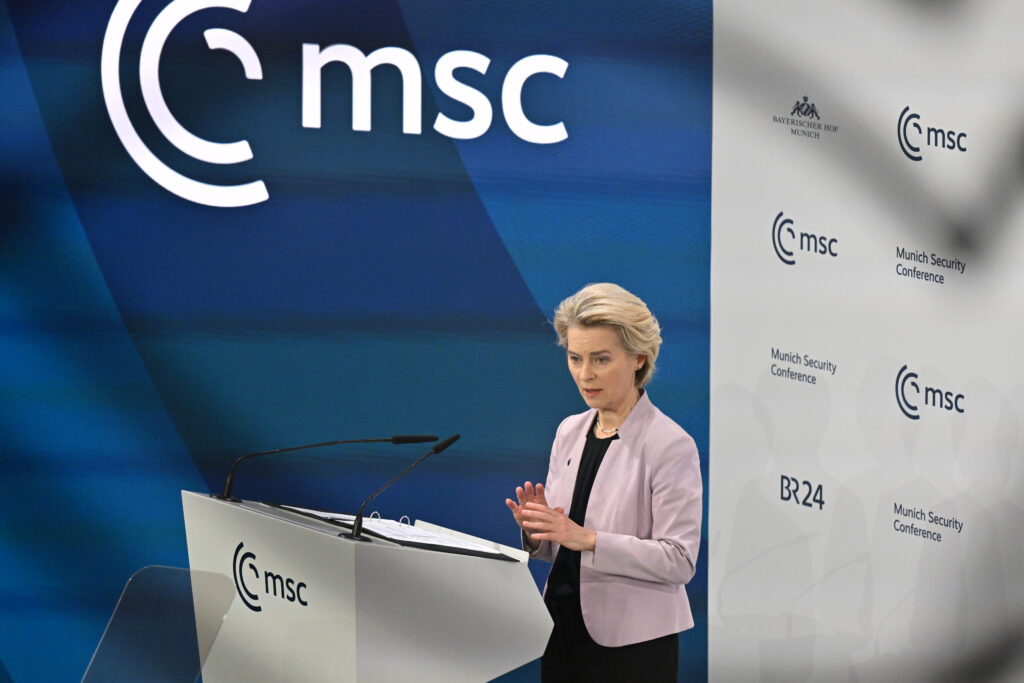Brussels – Even before he entered the Oval Office, Donald Trump had begun pressuring NATO’s European allies to increase their defence spending considerably. The Twenty-Seven seem intent on following this indication, frightened by the impression that Washington wants to disengage from the Old Continent, leaving it vulnerable to potential Russian aggression. But one EU state is resisting, practically alone, against the arms race: Spain of Pedro Sánchez.
The Madrid executive, led by a centre-left coalition between the Partido Socialista (PSOE) of Prime Minister Pedro Sánchez and Sumar (a platform that brings together several formations of the radical left), confirmed its intention to keep the spending pledges made when forming the government. That is, to allocate 1.32 per cent of GDP to defence this year and reach the 2 per cent target (set by NATO in 2014, after Russia’s unilateral annexation of Crimea) by 2029.
The Iberian country is one of eight members of the alliance that have not yet hit the 2 per cent target. According to NATO’s estimates (which go back to last summer but should be updated next month), the others are Belgium, Canada, Croatia, Italy, Luxembourg, Portugal, and Slovenia. In fact, it spends the least: projections for 2024 speak of 1.28 per cent of gross domestic product going to defence. The actual figure could be even lower, as the Spanish economy grew by a remarkable 3.2 per cent in the year just ended, bouncing to first place in the OECD area.

In financial terms, for Madrid, it is a matter of going from the €17.5 billion allocated in 2024 to more than €36.5 billion over the next five years, focusing mainly on increased investment. The roadmap calls for nearly 21.2 billion in 2025 (touching precisely 1.32 per cent of the gross domestic product), then 24.7 billion in 2026 (1.49 per cent of GDP), then 28.4 billion in 2027 (1.66 per cent), surpassing 32.3 billion in 2028 (1.83 per cent) to finally stand at 36.5 billion in 2029. In short, a pace of about 4 billion a year. Far from peanuts.
However, as has become clear in recent months, 2 per cent is no longer enough. U.S. President Donald Trump has been repeating this since the election campaign. The new Pentagon chief, Pete Hegseth, reiterated it, and also Mark Rutte, the Secretary General of the North Atlantic Alliance, stated it shortly after taking office. From Munich, the chairwoman of the EU executive Ursula von der Leyen, opened to the possibility of uncoupling defence investment from the constraints of the Stability Pact by activating the safeguard clause, and the EU High Representative Kaja Kallas also supports a greater commitment of member states to defence.
For the time being, there is still no officially agreed figure (it could happen at the next NATO summit scheduled for late June in The Hague), but as much as 5 per cent has already been put on the table by the U.S. administration. A more than double increase, the latter, which would be difficult for many organisation members to sustain (Washington spent less than 3.4 last year, Warsaw more than 4.1). Rutte urged allies still below the 2 per cent threshold to hurry to reach it “by summer”.
The Spanish government insists that Trump’s ranting aside, the only currently binding commitment is the 2 per cent—which, they point out, became such only at the Madrid summit in 2022, whereas in 2014, it was a recommendation—and, therefore, that is the target between now and 2029. “Spain, as a serious, reliable and responsible ally, knows perfectly well what it has to do and does not need to take lessons from anyone,” cut short the Defense Minister, Socialist Margarita Robles, meeting in Brussels with the Twenty-Seven counterparts last week.

As expected, the PSOE line was criticized by government allies and the opposition. Pablo Bustinduy, the minister of Social Rights in the Sumar quota, warned about “insane military spending.” Sumar and Podemos, former executive partners who now provide outside support, have regularly opposed sending war materiel to Ukraine, particularly Leopard tanks.
On the other hand, the leader of the Partido Popular (PP), Alberto Núnez Feijóo, criticised the Sánchez government for spending too little on defence, making Spain an “unreliable” partner within the Atlantic Alliance and putting Madrid in a weak position in relations with Washington.
These are all criticisms Sánchez’s minority executive will have to consider in parliament since the Cortes still have to pass the Budget Law for 2025. If it does not pass, programs already underway in defence would go ahead, but new investments would be frozen.
English version by the Translation Service of Withub

![La presidente della Commissione europea, Ursula von der Leyen, alla conferenza internazionale sulla sicurezza [Monaco, 15 febbraio 2025]](https://www.eunews.it/wp-content/uploads/2025/02/vdl-monaco-350x250.jpeg)




